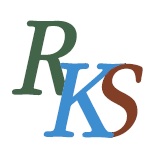 ISSN : 1229-0076
ISSN : 1229-0076
Toegye’s Appraisal of Daoism
Abstract
The attitudes of Joseon scholars toward Daoist discourse are often understood as hostile and, with a few exceptions, as almost exclusively negative. The example of Toegye Yi Hwang, however, shows that a negative attitude toward Daoist texts and techniques was often accompanied by a thorough knowledge on the part of the scholar attacking them. This phenomenon cannot be fully explained by the necessity of knowing the topic to be criticized in order to better refute it. Daoist discourse contained a broad range of motifs which were appropriated or close to Confucian teaching and if studied properly, Confucian scholars could use them relatively freely without the danger of accusation of heterodox tendencies. The purpose of this study is to analyze the Daoist sources available to Toegye and his treatment of them on the public and private level. This includes the texts of Laozi and Zhuangzi, inner alchemistic treatises such as the Cantong qi, the motif of the immortals, etc. The treatment of these sources in Toegye’s works indicate that while warning against Daoist studies on a public level, he possessed a very good command of them and under certain condition allowed their use in specific areas, especially numerology, medicine, and exegesis of Song dynasty Confucian works.
- keywords
- Toegye Yi Hwang, Daoism, orthodoxy, inner alchemy, immortals, Laozi, Zhuangzi
- 다운로드 수
- 조회수
- 0KCI 피인용수
- 0WOS 피인용수

